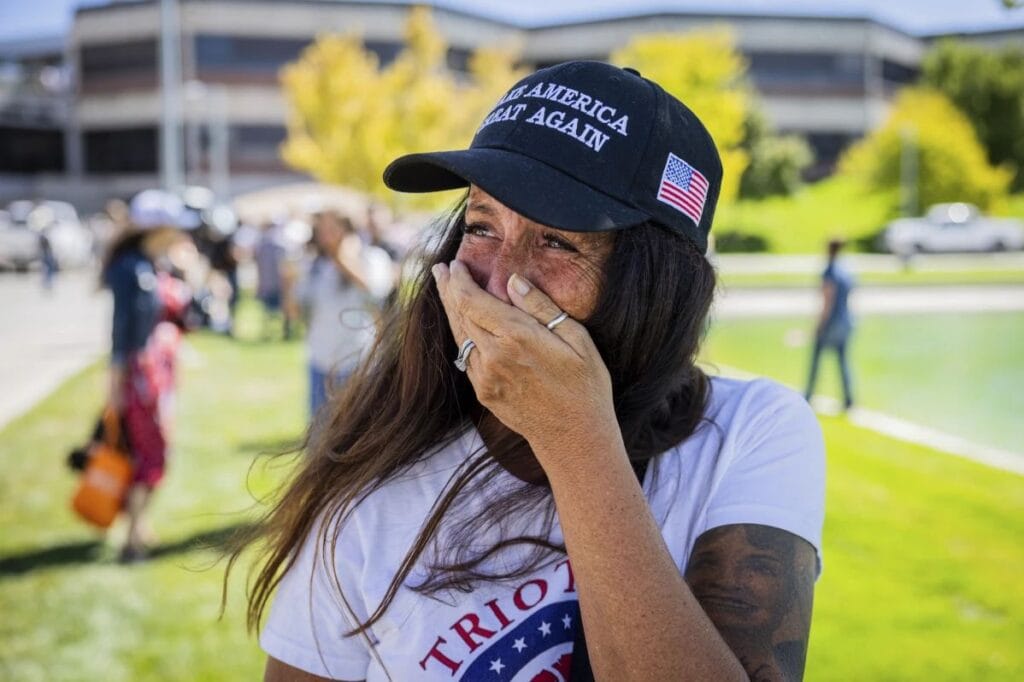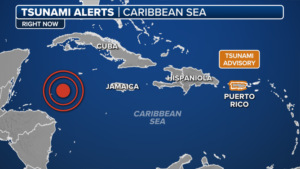Charlie Kirk, a well-known conservative activist and co-founder of Turning Point USA, was tragically shot and killed on Wednesday during a campus event in Utah. His death has not only shaken conservative circles but also reignited a national debate about political violence in the United States.
Kirk, only 31 years old, had built a reputation as a fiery speaker, a close ally of former President Donald Trump, and a prominent face of right-wing youth activism. He was attending an event at Utah Valley University (UVU) when the shooting occurred, a moment that has since spread rapidly across social media and news outlets.
The announcement of Kirk’s death came from Donald Trump himself, who described Kirk as “great, and even legendary.” Posting on Truth Social, Trump praised his ally’s ability to connect with America’s younger generation, writing:
“No one understood or had the heart of the youth in the United States of America better than Charlie.”
Trump’s post was quickly echoed by a wave of political figures across both parties. While Republicans mourned the loss of a rising figure in conservative politics, even some Democrats joined in condemning the violence and extending condolences to his family.
What Happened at Utah Valley University
The incident unfolded during a Turning Point USA debate at UVU’s Sorensen Student Center courtyard. Videos verified by the Associated Press captured Kirk under a white tent labeled with slogans like “The American Comeback” and “Prove Me Wrong.”
In the footage, Kirk is seen answering questions from students when a gunshot suddenly pierces the air. He instinctively clutched his neck, blood visibly streaming down, while shocked attendees screamed and scrambled for safety.
Eyewitnesses recall the moment vividly. “People gasped and then everyone started running,” one student told local reporters. “Nobody thought something like this could happen on our campus.”
Despite quick responses from emergency personnel, Kirk did not survive the wound.
The Investigation
As of Wednesday night, the suspected shooter had not been taken into custody. Authorities clarified that one individual initially detained was not connected to the attack. Orem Mayor David Young confirmed that investigators were still working to identify and track down the assailant.
The lack of immediate answers has heightened tensions, especially given the politically charged nature of the event. Law enforcement urged the public not to spread unverified theories, though speculation has already circulated widely online.
The Moments Before the Shooting
Ironically, the debate that Kirk was leading centered on gun violence. Just minutes before the fatal shot, he was asked a pointed question by an audience member:
“Do you know how many transgender Americans have been mass shooters over the last 10 years?”
Kirk replied bluntly: “Too many.”
The exchange continued with the student pressing further about mass shootings in general. Kirk responded, “Counting or not counting gang violence?” Seconds later, the sound of gunfire ended the dialogue abruptly.
This eerie sequence of events has been replayed countless times online, fueling both outrage and sorrow.
Divisions on Campus
The event itself was controversial even before the shooting. More than 1,000 students had signed a petition urging the university to cancel Kirk’s appearance, citing concerns about his rhetoric and the divisiveness of his views.
Despite the petition, UVU officials defended the decision to host him, citing the importance of free speech and open dialogue. “Universities are places where difficult conversations should be allowed,” a university statement read last week.
Kirk himself had taken note of the backlash. In a post on X (formerly Twitter), he shared headlines about protests over his Utah appearances, asking, “What’s going on in Utah?”
Kirk’s killing comes at a time when the U.S. is experiencing an alarming surge in politically motivated violence.
In just the past year:
- A Minnesota state legislator and her husband were assassinated in their home.
- A Colorado parade was firebombed by extremists demanding the release of Hamas hostages.
- Pennsylvania’s governor, who is Jewish, survived an arson attack on his residence.
- Most notably, Donald Trump himself was shot at during a campaign rally.
These incidents underscore a troubling trend: political disagreements in America are increasingly being settled with bullets instead of debate.
Former Utah congressman Jason Chaffetz, who was in attendance at the UVU event, described the shooting as surreal. Speaking on Fox News, he said, “I heard the shot, saw Kirk collapse, and realized security was just not enough. Utah is one of the safest places on earth, and yet this still happened.”

Images from the aftermath show stunned students crying, embracing, and struggling to process what had just occurred. One attendee, Allison Hemingway-Witty, was photographed in tears as others fled the courtyard.
Turning Point USA, the organization Kirk co-founded, issued a brief statement through spokesperson Aubrey Laitsch: “We are confirming that Charlie was shot and we are praying for him and his family.”
By evening, the group had turned its social media channels into memorials, sharing videos and quotes from Kirk’s years of activism.
Charlie Kirk’s rise in politics was meteoric.
Born in suburban Chicago, he launched Turning Point USA in 2012 at just 18 years old alongside Tea Party activist William Montgomery. The group’s mission was simple yet ambitious: promote free markets and limited government on college campuses.
Initially, the organization struggled to gain traction. Many dismissed Kirk as too young and inexperienced. But his relentless energy and combative style soon won him powerful backers, including conservative donors eager to fund a counterweight to progressive activism on campuses.
By 2016, Turning Point had become a significant force in conservative circles, especially after enthusiastically supporting Donald Trump’s candidacy. Kirk worked closely with Trump’s eldest son, Donald Trump Jr., during the election campaign, cementing his place within the movement.
Kirk’s growing profile landed him frequent slots on cable news, where he became a recognizable face of the culture wars. His unapologetic defense of Trump and sharp criticism of liberal institutions made him a favorite among grassroots conservatives.
Trump’s Strongest Youth Ally
Trump himself often praised Kirk, even appearing at Turning Point conferences to energize young conservative voters. The two men shared a mutually beneficial relationship: Kirk delivered youthful enthusiasm and organizing power, while Trump gave Turning Point legitimacy and visibility.
Over time, Kirk’s influence extended beyond campuses. He became a regular at conservative conferences, advised Republican candidates, and positioned himself as a cultural warrior against what he saw as leftist dominance in education and media.
His critics accused him of fueling polarization, but his supporters saw him as a truth-teller who gave voice to frustrations often ignored by mainstream institutions.

Kirk’s death leaves a significant void in conservative politics. At just 31, he had already built a national platform, cultivated a loyal following, and laid the groundwork for long-term influence within the Republican Party.
For young conservatives, he was more than a commentator — he was a role model. He represented the possibility that youth could not only participate in politics but also lead it.
Trump’s words summed up this sentiment: “Charlie was a legend. He had the heart of America’s youth. He will never be forgotten.”
Beyond individual grief, Kirk’s death forces Americans to confront a deeper, more troubling reality: political violence is no longer an outlier. It is becoming woven into the fabric of civic life.
Whether from the far right, far left, or other extremist ideologies, the normalization of violence threatens democracy itself. The shooting at UVU is not just a personal tragedy but a warning sign that the space for civil debate is narrowing.
Universities, once seen as bastions of open dialogue, are now becoming flashpoints of conflict. Politicians, activists, and even ordinary citizens find themselves targets simply for expressing their views.
Charlie Kirk’s life was defined by his passion for conservative activism and his ability to connect with young Americans. His untimely death at a Utah college campus underscores the urgency of addressing political violence in the United States.
As tributes pour in, one thing is clear: whether admired or criticized, Kirk made an undeniable mark on America’s political landscape. His story is both an inspiration to his followers and a sobering reminder of the dangers facing a divided nation.
The question now is whether the country will take steps to reverse this dangerous trend — or whether more names will be added to the growing list of victims of political violence.





